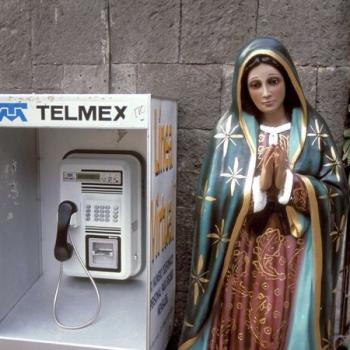 By Tom Sine
By Tom Sine
"Talking to God may be losing out to Facebook" for the teens of today, says the Barna Group. American teens are displaying the lowest levels of participation in prayer, reading religious resources, attending Sunday school and small groups, and being involved in witness to peers since Barna began surveying teenagers.
When I attempted to make leaders in mainline denominations aware of emerging patterns of decline in attendance in the 1980s, they were largely in denial. Denominational leaders today are faced with the continuing crisis of numbers of attendance and giving that are declining every year. Now evangelical denominations are also beginning to experience decline. Twenty-three of twenty-five major evangelical denominations, including the Southern Baptist Convention, are experiencing declining attendance patterns. We are also losing 20- and 30-year-olds at a disturbing rate, a rate we have not seen before.
Declining attendance is likely to impact giving in evangelical churches just as it has in mainline denominations. While general giving in the church has increased somewhat in recent years, the whole story is more complex. According to the Empty Tomb Association, per capita giving among American Christians has declined by almost one fifth, from 3.11 percent in 1968 to 2.56 percent in 2007 -- a period in which Americans became much more affluent. (See John L. and Sylvia Ronsvalle's The State of Church Giving through 2007, Empty Tomb, 2000, page 17.)
Further, most of the current funding is contributed by the silent generation and baby boomers. What will happen to the future of missions funding over the next fifteen years as the American church continues to decline and gray, and the baby boomers leave the work force?
In The New Conspirators, I describe how young missional innovators, concerned by these patterns of decline, are challenging the established church to raise the bar. They are calling us to embrace a more authentic whole-life faith, and to reinvent our congregations to become more outwardly focused in local and global missions (pp. 39-55).
While these committed innovators are calling us to raise the bar and alter the unfortunate trend lines, formidable forces are pulling us in the opposite direction:
- The marketers of the global mall are attempting to seduce the middle class with expensive notions of the good life, and too many of us before the recession were spending more than we made. To the extent that we succumb, we will have less time and money to invest in what we claim matters most.
- As I have worked on Christian college campuses over the past thirty years, the number one reason students give for not going into missions, believe it or not, is Christian parents. Students report that their parents typically declare: "We did not spend $100,000 sending you to a Christian college for you to go bopping off to a refugee project in Africa. You get your career underway, then you can visit the missionaries on vacation."
- For decades, students have been scripted to live out their parents' lifestyles. Very few are informing this generation that they may not be able to achieve the economic lifestyles with which they were raised, or inviting them to imagine less expensive, more missional lifestyles.
- Too many of our Christian colleges are in an unsustainable "arms race to the top" to build more luxurious dorms and more elaborate food courts -- and the students get stuck with the bill. Reportedly, one college has actually imported a French pastry chef.
- The marketers of this new global economy are becoming increasingly sophisticated in collecting information about us and our preferences on the internet, in order to use that information to influence all of us to buy into their fables about pursuing lavish lifestyles. They have a new array of means, through handheld devices and social media, to persuade this generation of "digital natives" that their identity, self worth, and life purposes hang in the balance if they do not buy into their prescribed notions of "cool."
The architects of the global mall insist that the ultimate in human experience is defined in primarily economic terms. As people of faith, we know that isn't true. We know that the ultimate is defined primarily in our worship of the Living God and the transformation of our lives and communities through the power of the risen Christ. Too many evangelicals baptize and appropriate the values of the dominant culture.




